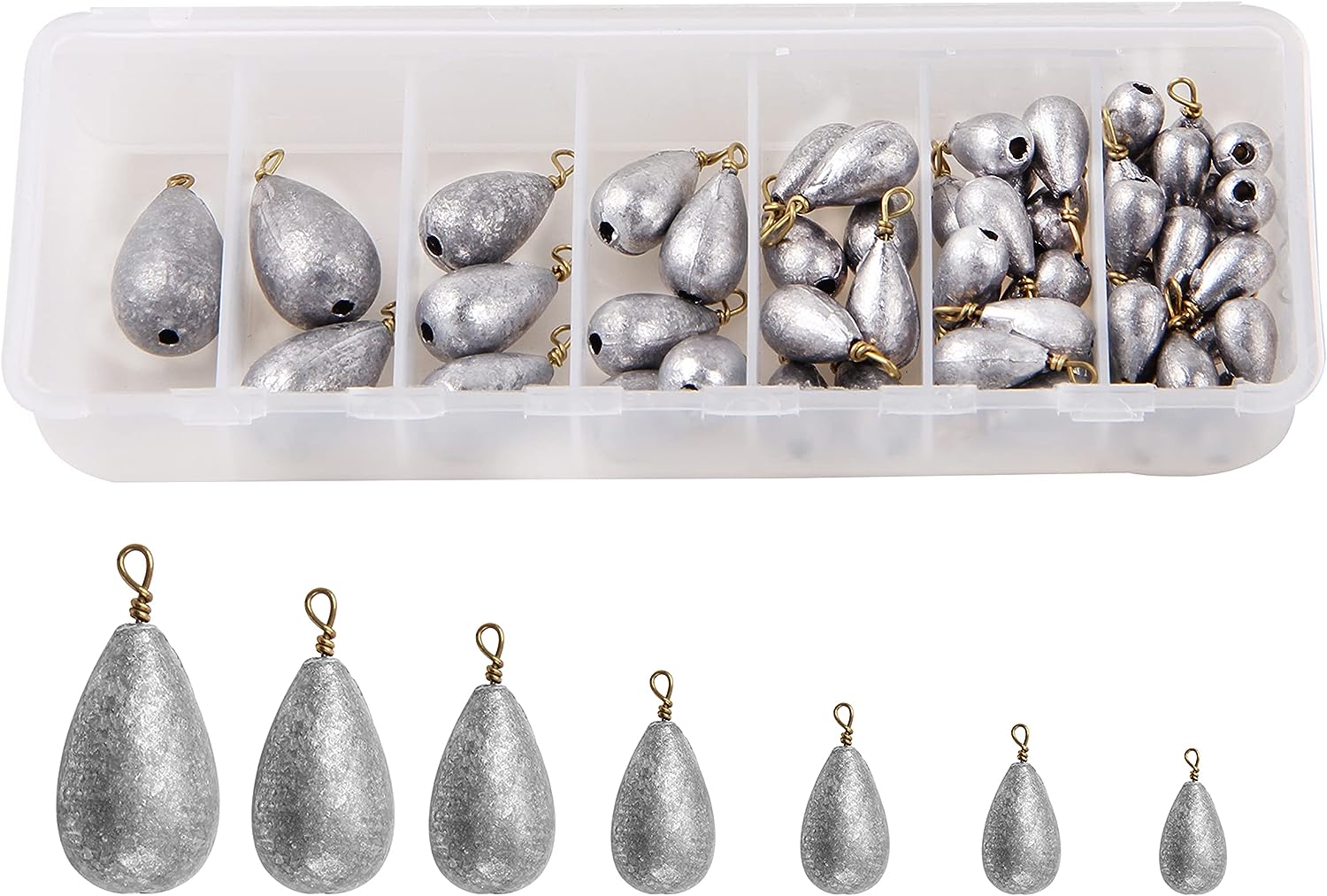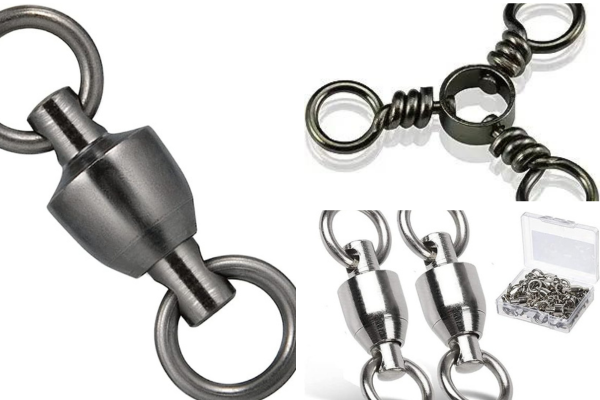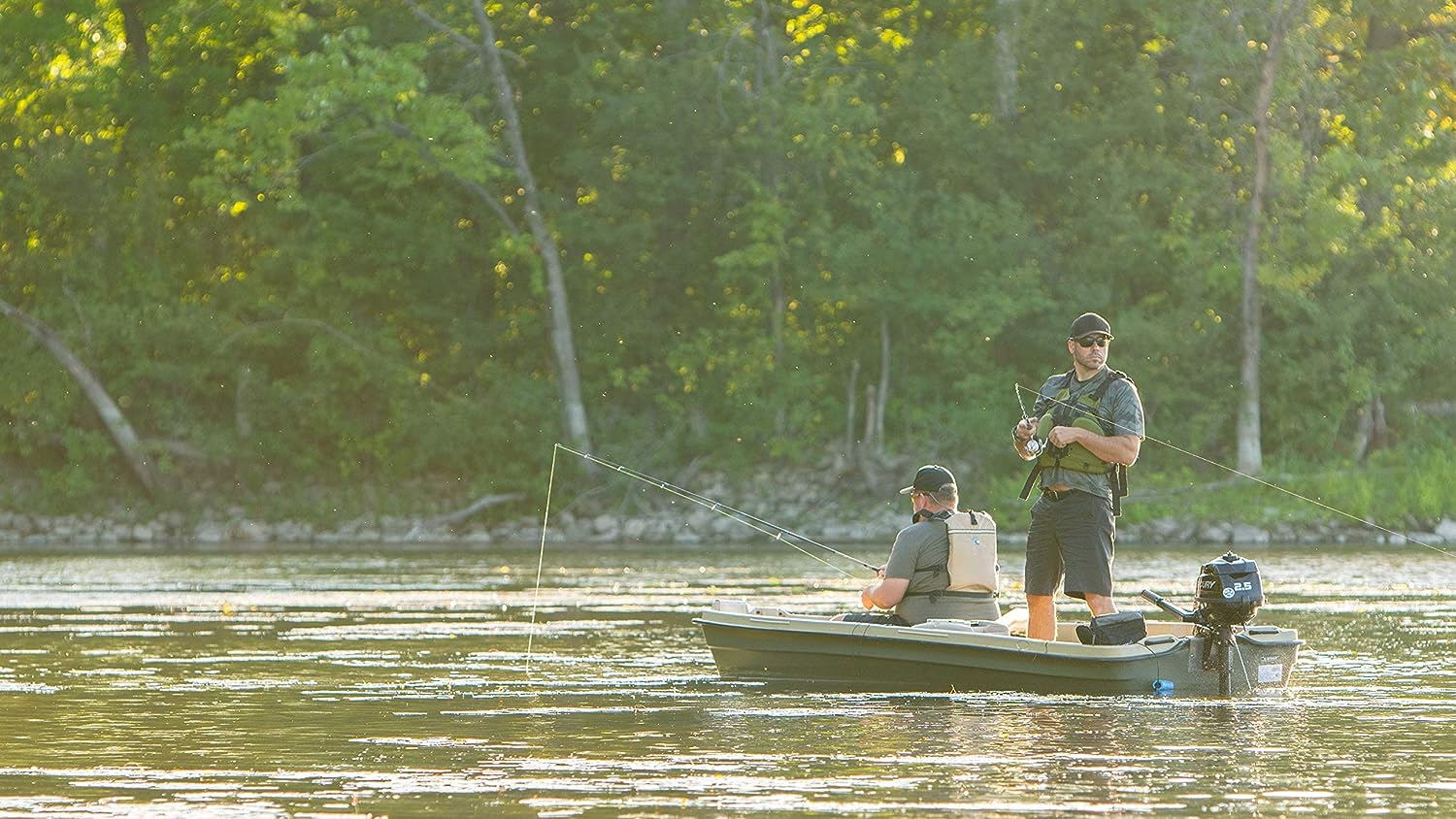Fishing isn’t just a hobby; it’s a way of life. And when it comes to mastering the art of fishing, understanding the nuances of fishing equipment is important. The fishing weight is an essential piece of gear that often doesn’t get the spotlight it deserves. In this article, we’ll discuss fishing weights to help you make informed choices and enhance your fishing experience.
What Are Fishing Weights Used For?
Picture this: You’ve found the perfect fishing spot, the weather is just right, and you’re casting your line with anticipation. But wait, your bait isn’t sinking to the desired depth. This is where fishing weights come into play. Fishing weights, often called sinkers, are designed to add extra mass to your fishing rig, enabling you to cast your line farther and get your bait down to the desired depth. Whether you’re fishing in freshwater or saltwater, fishing weights are indispensable for targeting various species.
How Heavy Should Fishing Weights Be?
It depends on various factors. Your fishing weights will depend on your fishing type, the water conditions, and the species you’re targeting. Lighter weights like split shots are great for finesse fishing and slow-moving waters. On the other hand, heavier weights, like pyramid sinkers, are ideal for deep-sea fishing or fast-moving currents.
To get started, consider the depth and current strength you want to fish at. As a general rule of thumb, start with a weight that allows your bait to sink naturally but doesn’t make it feel too rigid. Experiment with different weights until you find the sweet spot that balances casting distance and bait presentation.
Do You Need Fishing Weights?
Yes, you most likely do. Fishing weights can significantly improve your chances of success by allowing you to reach the proper depths and present your bait effectively. Certain conditions may call for additional weight to keep your bait in the strike zone even if you’re using a buoyant lure. If you’re a beginner, fishing weights can also make casting and line management easier, helping you get the hang of the basics faster.
Do You Need Weights for Lures?

This is a common question, and the answer varies. Some lures, like crankbaits or topwater plugs, are designed to float or suspend at a certain depth. In such cases, adding weight might disrupt their natural action and reduce their effectiveness.
However, there are scenarios where adding fishing weights to a lure can be advantageous. For instance, if you’re fishing in deep water and want to reach greater depths quickly, you can attach a split shot or a specialized lure weight a few feet above your lure.
When using soft plastic lures or live bait, weights can be indispensable. Soft plastics often lack the natural sinking motion of live bait, so adding a weight can make them more convincing to wary fish.
Conclusion
Fishing weights might not be the flashiest part of your gear, but they play an important role in helping you reel in that prized catch. From getting your bait to the proper depth to fine-tuning your presentation, fishing weights are your silent partners in the art of angling.
Remember, there’s no one-size-fits-all answer to how heavy your weights should be – it’s all about adapting to the conditions and the fish you’re pursuing. Tight lines and happy fishing!
Share the Love
If you found this post useful, please let others know about it by sharing it.
Related Posts
If you found this post useful, please explore others posts.


